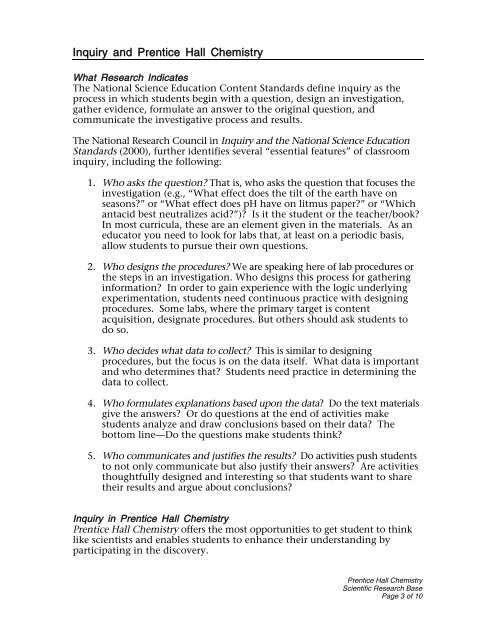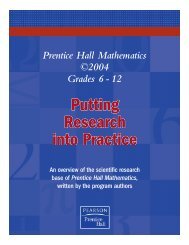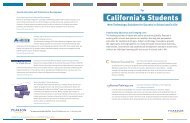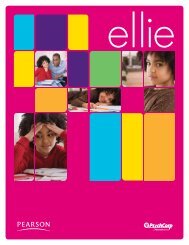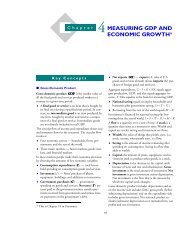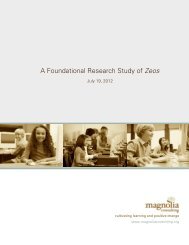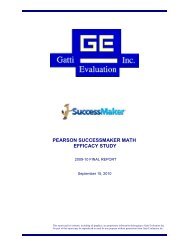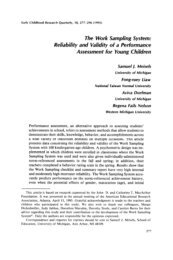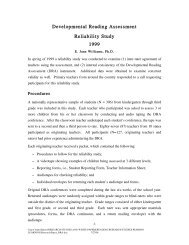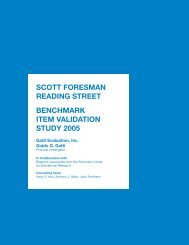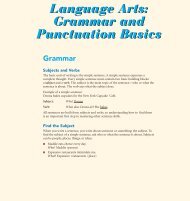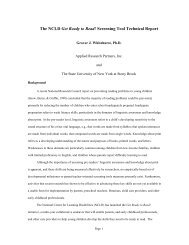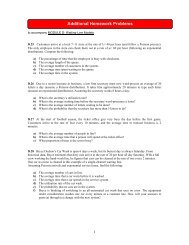Prentice Hall Chemistry. Pearson
Prentice Hall Chemistry. Pearson
Prentice Hall Chemistry. Pearson
- No tags were found...
You also want an ePaper? Increase the reach of your titles
YUMPU automatically turns print PDFs into web optimized ePapers that Google loves.
Inquiry and <strong>Prentice</strong> <strong>Hall</strong> <strong>Chemistry</strong>What Research IndicatesThe National Science Education Content Standards define inquiry as theprocess in which students begin with a question, design an investigation,gather evidence, formulate an answer to the original question, andcommunicate the investigative process and results.The National Research Council in Inquiry and the National Science EducationStandards (2000), further identifies several “essential features” of classroominquiry, including the following:1. Who asks the question? That is, who asks the question that focuses theinvestigation (e.g., “What effect does the tilt of the earth have onseasons?” or “What effect does pH have on litmus paper?” or “Whichantacid best neutralizes acid?”)? Is it the student or the teacher/book?In most curricula, these are an element given in the materials. As aneducator you need to look for labs that, at least on a periodic basis,allow students to pursue their own questions.2. Who designs the procedures? We are speaking here of lab procedures orthe steps in an investigation. Who designs this process for gatheringinformation? In order to gain experience with the logic underlyingexperimentation, students need continuous practice with designingprocedures. Some labs, where the primary target is contentacquisition, designate procedures. But others should ask students todo so.3. Who decides what data to collect? This is similar to designingprocedures, but the focus is on the data itself. What data is importantand who determines that? Students need practice in determining thedata to collect.4. Who formulates explanations based upon the data? Do the text materialsgive the answers? Or do questions at the end of activities makestudents analyze and draw conclusions based on their data? Thebottom line—Do the questions make students think?5. Who communicates and justifies the results? Do activities push studentsto not only communicate but also justify their answers? Are activitiesthoughtfully designed and interesting so that students want to sharetheir results and argue about conclusions?Inquiry in <strong>Prentice</strong> <strong>Hall</strong> <strong>Chemistry</strong><strong>Prentice</strong> <strong>Hall</strong> <strong>Chemistry</strong> offers the most opportunities to get student to thinklike scientists and enables students to enhance their understanding byparticipating in the discovery.<strong>Prentice</strong> <strong>Hall</strong> <strong>Chemistry</strong>Scientific Research BasePage 3 of 10


